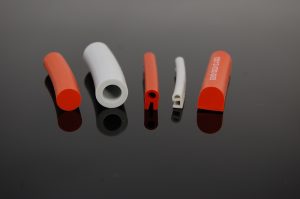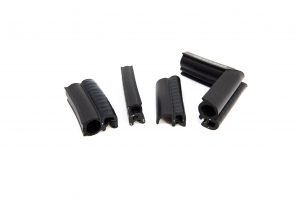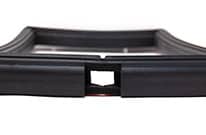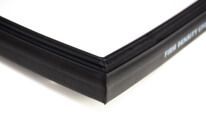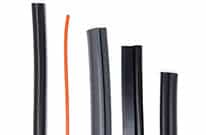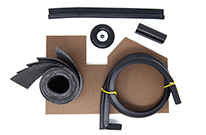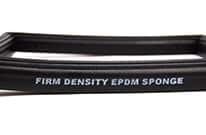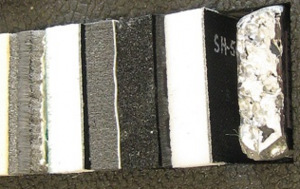
This is the second in a two-part series about thermal acoustic insulation from Elasto Proxy, a global supplier of specialty “insulation sandwiches” that reduce both heat and sound.
Elasto Proxy custom-fabricates thermal acoustic insulation for applications such as mobile equipment and military vehicles. These multi-layer composites meet your application requirements for a complete sealing and insulation solution. They also meet your business requirements for value-added products that are cost-effective, reliable, and easy-to-install on the assembly line or in the field.
In Part 1 of this series, we examined why diesel-powered vehicles and equipment need insulation with both thermal and acoustical properties. We also examined how heat and sound travel, and some of the insulating techniques that are used. In Part 2 of this series, we’ll examine two thermal acoustic products (ZTBRA and Z3T) that illustrate Elasto Proxy’s capabilities. Specialized services such as edge sealing for washdown-capable engine bay insulation complement our lamination and water jet cutting skills.
ZTBRA Thermal Acoustic Insulation
ZTBRA thermal acoustic insulation is a sandwich-like composite with the following ingredients:
- aluminum foil or Mylar facing
- polyester (PE) or polyurethane (PU) open cell acoustic foam
- polyvinyl chloride (PVC) barrier material
- pressure-sensitive adhesive (PSA) with a special liner
The aluminum foil or Mylar facing reflects radiated heat and provides improved resistance to fluids and tearing. This foil or facing is laminated onto the PE or PU foam, an open cell acoustical material that absorbs the low frequencies common to big diesel engines. The PVC barrier material also helps to block the passage of sound, and provides resistance to liquids and gases such as water and water vapor. The special PSA liner peels easily for ease and speed of installation.
ZTBRA thermal acoustic insulation is recommended for applications where the maximum service temperature does not exceed 300° F, and where there’s only short-duration exposure to high heat. For applications that must withstand higher temperatures or sustained levels of heat, Z3T is used. Elasto Proxy can also custom-fabricate insulation sandwiches for other, application-specific requirements. For example, we can supply engine bay insulation that resists water and detergents from wash-downs.
Z3T Thermal Acoustic Insulation
Z3T is a sandwich-like composite that’s made of these materials.
- silicone-coated fiberglass facing
- open cell silicone foam
- PVC barrier material
- PU or PE foam
- PSA with a low-density polyurethane (LDPE) liner
The silicone-coated fiberglass facing can withstand continuous temperatures of 500° F and will not deteriorate when exposed to fire. The open-cell silicone foam absorbs higher-frequency sounds. The PVC barrier blocks lower frequency sounds in the 400 Hz to 600 Hz range. The PU or PE decoupler is made of 1/4”-thick foam that prevents the transfer of vibration and sound to nearby components. Without this foam decoupler, metal components would vibrate (and cause sound). The decoupler also improves the energy absorption of the barrier.
Finally, the PSA adhesive and LDPE liner makes Z3T installation cost-effective and easy-to-install. Although Z3T is designed for higher-temperature applications, an expensive high-temperature PSA isn’t required. Rather, a commercial PSA that can withstand temperatures up to 250° F may be used. That’s because the PSA isn’t right near the heat source, and the other layers in Z3T block or absorb significant amounts of heat. The LDPE liner also strengthens Elasto Proxy’s Z3T product because, unlike paper, this plastic won’t tear when peeled and stretched.
Custom Fabrication and Vendor Selection
Many thermal and acoustical materials are available, so it’s important to pick a partner who can help with insulation selection. Yet it’s also critical to choose a custom-fabricator who understands how to arrange each material into a sandwich-like structure that meets all of your requirements. Application knowledge and technical expertise are essential, too. You also need a partner who uses the most cost-effective fabrication techniques. That’s why after lamination, Elasto Proxy uses water jet cutting to make fine, fast cuts with no tooling charges.
From prototyping to low-to-medium volume production, Elasto Proxy is the right choice for thermal acoustic insulation. How can we help you? To get started, contact us.


